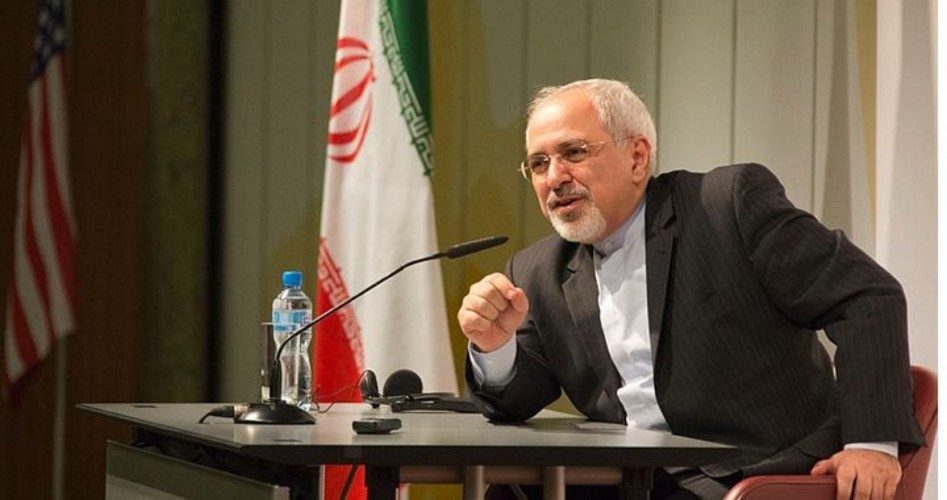
On Wednesday Iran’s Foreign Minister Javad Zarif (shown) warned Donald Trump to keep his hands off the nuclear deal he and Secretary of State John Kerry made last year:
Every U.S. president has to understand the realities of today’s world. The most important thing is that the future U.S president sticks to agreements.
Whether Trump agrees with Zarif, or not, will likely be among the very first decisions he’ll be forced to make in January. During his campaign Trump repeatedly called the Iran nuclear deal “the worst deal ever negotiated,” a “disaster,” and said that it could lead to a “nuclear holocaust.” In March he told the American Israel Public Affairs Committee, “My number one priority is to dismantle the disastrous deal with Iran.”
Iran is making Trump’s decision easy. On the same day that Zarif warned Trump, the United Nations announced that Iran violated that agreement for the second time this year. The first time, in February, the Obama administration spent $10 million buying up excess “heavy water” the regime produced — water that contains larger-than-normal amounts of deuterium, a hydrogen isotope, and that is used to aid nuclear reactions — in order to help Iran keep its agreement. Add to that the $400 million cash-for-hostages “deal” that involved shipping currency secretly to the Iranian regime in a cargo plane in the middle of the night. And to that the report from the State Department in June that Iran is using that money to augment its terrorist activities which keeps Iran as “the foremost state sponsor of terrorism in 2015, providing a range of support, including financial, training and equipment to groups around the world.” Secretary John Kerry admitted as much during the negotiations, saying that some of that money would “end up in the hands of the IRGC [Iran Revolutionary Guard Corps].”
The deciding factor for Trump will likely be the continued vilification of the United States by Iran’s Supreme Leader and Zarif’s boss, Ali Khamenei, for not lifting sanctions rapidly enough under the deal.
The “deal,” when it is viewed closely, is nothing more than a “gentlemen’s agreement,” with violations unsanctioned. As the Wall Street Journal astutely noted: “The Iran deal isn’t a treaty, wasn’t formally signed, and wasn’t ratified by the U.S. Congress. It was approved by the United Nations Security Council, but not under procedures that obligate member states to observe its terms under threat of penalty.”
The “agreement” allows the lifting of sanctions by the United States and the other parties (which include China, Russia, France, Germany, and the U.K.) provided that Iran keeps its end of the bargain: reducing the number of centrifuges by two-thirds, capping the level of uranium enrichment well below the level needed for bomb-grade material, reducing its enriched uranium stockpile by 97 percent and keeping it at that level for 15 years, and submitting to unannounced inspections by the UN’s International Atomic Energy Agency (IAEA).
Dismantling the agreement would have some repercussions, not all of them happy to the international community. A unilateral withdrawal by the United States would no doubt upset the other parties who plan to announce on Monday their continued support of it. It would upset international banks, which were delighted with the chance to reopen branches in the terrorist country. It would force multinational corporations lusting after new customers and markets to reconsider the risks and possible sanctions that might be reimposed by the new Trump administration.
On the other hand, a Trump decision to withdraw would delight Israeli Prime Minister Benjamin Netanyahu who has been outright hostile to the nuclear deal from the beginning.
Thus the Iranian deal might just be the first challenge Donald Trump faces in his quest to “make America great again” – withdrawing from an agreement constituting an “entangling alliance” that never, in the minds of many, made any reasonable sense in the first place.
An Ivy League graduate and former investment advisor, Bob is a regular contributor to The New American magazine and blogs frequently at LightFromTheRight.com, primarily on economics and politics. He can be reached at [email protected].


